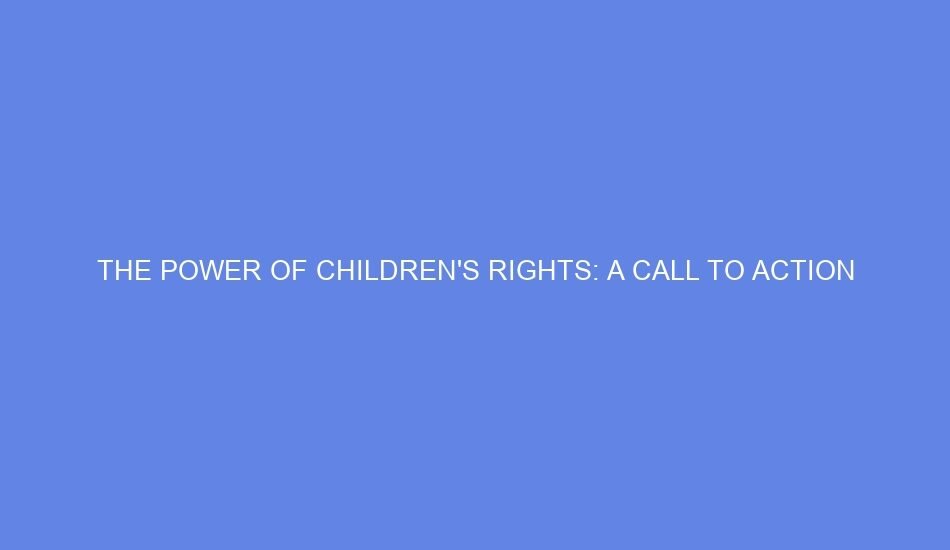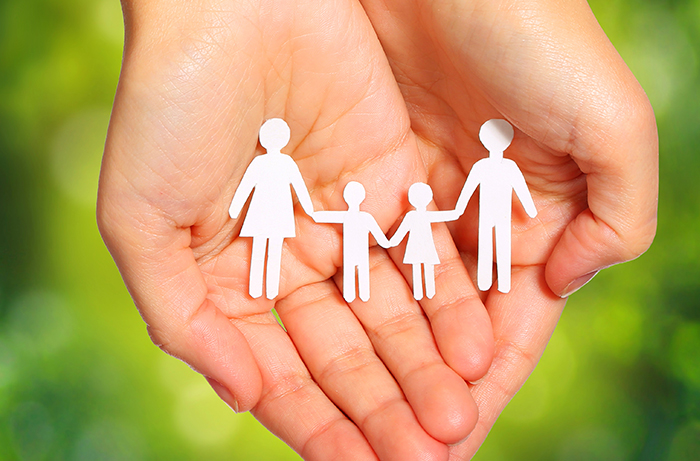Children’s rights are fundamental human rights that are specifically designed to protect the well-being, dignity, and development of children. These rights include the right to education, healthcare, protection from exploitation, and to be treated fairly and without discrimination. The United Nations Convention on the Rights of the Child (UNCRC), adopted in 1989, is the most comprehensive international treaty that sets out these rights and has been ratified by almost every country in the world.
Understanding the Importance of Children’s Rights
Children’s rights encompass a broad spectrum of issues that directly affect their lives and future. The right to education ensures that every child has access to quality education, regardless of their socioeconomic background. Education empowers children, equipping them with essential knowledge and skills to pursue their dreams and contribute meaningfully to society.
The right to healthcare guarantees access to affordable and quality healthcare services, protecting children from preventable diseases and ensuring their overall well-being. This right is particularly crucial in developing countries where basic healthcare services may be scarce, leading to high rates of child mortality.
Children also have the right to be protected from abuse, neglect, violence, and exploitation. Governments and communities must actively work to prevent and respond to child abuse, providing safe environments for children to grow and thrive. Additionally, children must be heard and their opinions given due weight in matters affecting them, ensuring their active participation in decision-making processes.
Global Progress and Challenges
Since the adoption of the UNCRC, significant progress has been made worldwide in promoting and protecting children’s rights. Many countries have enacted laws and policies aligned with the Convention, emphasizing the importance of creating a safe and supportive environment for children to develop.
However, numerous challenges persist. Millions of children around the world still face extreme poverty, lack of access to education, and violence. Discrimination based on gender, race, disability, or social status continues to hinder the full realization of children’s rights.
A Call to Action
To ensure the effective implementation of children’s rights globally, it is imperative for governments, civil society organizations, and individuals to take collective action. Here are a few key areas where concerted efforts are crucial:
Educational Equity
Governments must prioritize investment in education, ensuring access to quality education for all children, regardless of their background. This involves removing barriers such as gender-based discrimination, providing inclusive learning environments, and promoting lifelong learning opportunities.
Child Protection and Welfare
Safeguarding children from violence, abuse, and exploitation requires strengthening child protection systems. Governments should develop comprehensive legislation, establish child-friendly reporting and complaint mechanisms, and promote awareness campaigns to prevent and respond to child rights violations.
Social and Economic Support
Addressing child poverty and inequality is crucial in securing children’s rights. Governments need to allocate sufficient resources to social protection measures, ensuring access to healthcare, nutrition, and social services for every child. Economic policies should prioritize the reduction of disparities and strive for equitable development.
Participation and Empowerment
Children should be actively involved in decision-making processes affecting their lives. Governments, schools, and communities must create opportunities for children to express their opinions, be heard, and actively participate in shaping policies that concern them.
Celebrating Progress and Continuing the Journey
It is essential to acknowledge and celebrate the progress made in advancing children’s rights. Efforts by governments, civil society organizations, and individuals have resulted in improved conditions for children worldwide. However, it is equally important to recognize that much work remains to be done.
Through collective action, individuals and organizations can continue to advocate for children’s rights and hold governments accountable. By ensuring that children are protected, nurtured, and empowered, we pave the way for a better future, built on the principles of equality, justice, and respect for the rights of every child.
The power of children’s rights lies in their ability to shape the future. By upholding and promoting these rights, we ensure that children grow up in a safe, supportive, and nurturing environment, enabling them to reach their full potential. It is our collective responsibility to take action, advocate for change, and create a world where every child’s rights are respected, protected, and fulfilled.
Nidhin
For More Details Call: +917510220582





